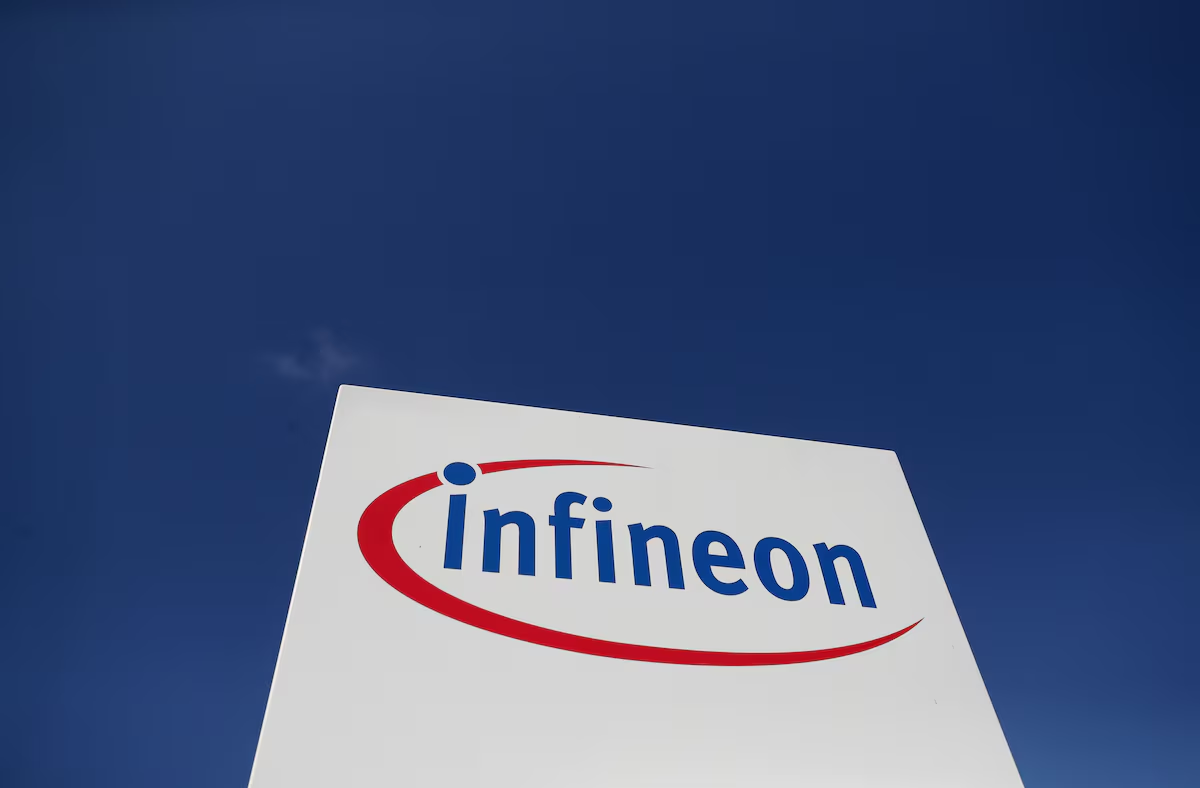Tech
China’s DeepSeek sets off AI market rout
Published
4 months agoon

Nasdaq futures slumped and technology shares slid in Japan on Monday as surging popularity of a Chinese discount artificial intelligence model wobbled investors’ faith in the profitability of AI and the sector’s voracious demand for high-tech chips.
Nasdaq 100 futures were down 2.6% and S&P 500 futures slipped 1.4% by the European morning, and shares in Nvidia (NVDA.O) supplier Advantest (6857.T) fell 8.5% in Tokyo.
Frankfurt-listed shares of Nvidia slipped about 7%, while those of Tesla , Amazon and Meta fell more than 2% in early European trading.
Startup DeepSeek has rolled out a free assistant it says uses lower-cost chips and less data, seemingly challenging a widespread bet in financial markets that AI will drive demand along a supply chain from chipmakers to data centres.
“It’s a case of a crowded trade, and now DeepSeek is giving a reason for investors and traders to unwind,” said Wong Kok Hoong, head of equity sales trading at Maybank. AI-focused startup investor SoftBank Group (9984.T) slid more than 8%, on course for its biggest one-day fall since Sept. 30. Last week it announced a $19 billion commitment to fund Stargate, a data-centre joint venture with OpenAI.
Chip-making equipment giant Tokyo Electron (8035.T) fell 5%.
Tech-heavy markets in Taiwan and South Korea were closed.
European tech stocks (.SX8P), especially Dutch computer chip equipment maker ASML (ASML.AS), which counts Taiwan’s TSMC (2330.TW), Intel (INTC.O) and Samsung (005930.KS) as its customers, will likely face pressure at the open.
Shares of Nvidia, the poster child of AI, have risen 196% since the start of 2024, outperforming the 35% gain in the Nasdaq (.IXIC).What we strive to do is to show to the world that flying V is a viable alternative to the Cuban wing airplane that we’re flying with now and it can be as safe but much more energy efficient.
CAPEX IN QUESTION
Little is known about the small Hangzhou startup behind DeepSeek, but its assistant leapfrogged rival ChatGPT to become the top-rated free application on Apple’s App Store in the United States on Monday.
DeepSeek researchers wrote in a paper last month that the DeepSeek-V3 model, launched on Jan. 10, used Nvidia’s H800 chips for training, spending less than $6 million.
H800 chips are not top-of-the-line. Initially developed as a reduced-capability product to get around restrictions on sales to China, they were subsequently banned by U.S. sanctions.
Besides chips, data centres and related companies also took a hit on Monday, with Malaysia’s utility conglomerate YTL Power (YTLP.KL) falling 7% in Kuala Lumpur to its lowest in two months.
“The market is questioning the capex spend of the major tech companies,” said Nick Ferres, chief investment officer at Vantage Point Asset Management in Singapore, noting that positioning had become crowded.
To be sure, much remains unknown about the details of DeepSeek’s development and the hardware it uses.
“The idea that the most cutting-edge technologies in America, like Nvida and ChatGPT, are the most superior globally, there’s concern that this perspective might start to change,” said Masahiro Ichikawa, chief market strategist at Sumitomo Mitsui DS Asset Management. “I think it might be a bit premature.”
Markets reaction in China was also mixed, with a CSI300 index of AI shares (.CSI930713) down 2.2% but big data stocks (.CSI930745) up 4%.
(This story has been refiled to remove an extraneous letter in paragraph 10)
Source: www.reuters.com
You may like
Tech
Digital Economy Publisher Congratulates Samuel Nartey George on his Appointment
Published
2 weeks agoon
May 19, 2025
The Publisher and CEO of Digital Economy Magazine, Akin Naphtal recently paid a courtesy call on Samuel Nartey George (MP), Minister for Communication, Digital Technology and Innovations, to congratulate him on his appointment.
During the visit, the Publisher presented copies of the magazine featuring the Minister on the front page.
The magazine profiles the Minister’s background and highlights some of his notable activities since taking office.
Invitation to Digital Innovations Awards
The Minister was also invited to the upcoming Digital Innovations Awards, scheduled for June 27, 2025, at the Labadi Beach Hotel.
This event aims to recognize and celebrate outstanding contributions to digital innovation in Globally.
Mr.Samuel Nartey George expressed his gratitude for the recognition and emphasized the importance of digital innovation in driving Ghana’s economic growth.
The Minister also highlighted the significance of collaboration between the government, private sector, and civil society in resetting Ghana’s digital agenda.
Tech
University of Ghana (UG) Engages Ministry of Communication, Digital Technology and Innovations on Strategic Collaboration
Published
1 month agoon
April 17, 2025
A delegation from the University of Ghana (UG) today visited the Minister for Communication, Digital Technology and Innovations (MoCDTI) to explore collaborative opportunities in digital innovation, skills development and policy alignment.
Director of the Research and Innovation Directorate at the University of Ghana highlighted the University’s commitment to supporting national digital initiatives emphasizing the importance of aligning UG’s research and innovation efforts with governmental agendas in areas like artificial intelligence (AI) and coding.

Professor Dodoo-Arhin noted that UG has been proactive in fostering innovation through hackathons and other programs aimed at enhancing the skillsets of young people. He expressed the University’s interest in the proposed Innovation and Startup Bill, aligning with UG’s strategic focus on innovation.
He therefore announced UG’s readiness to provide space, expertise and certification support for government-led training programs, including curriculum development and short courses under the coders’ initiative.
Samuel Nartey George (MP) Minister for Communication, Digital Technology and Innovations, welcomed the UG delegation and expressed the Ministry’s openness to partnerships with academia.
He underscored the significance of academic input in shaping policies and announced the Ministry’s commitment to completing the Digital Youth Village within three months.
This facility, to be operated in collaboration with UG, will serve as a hub for training and innovation.
The Minister also revealed plans to replicate such centers across the country, integrating them into a broader ecosystem to support national innovation.
He discussed the expansion of the “One Million Coders” program to reskill and upskill Ghana’s workforce, emphasizing the role of universities in this initiative.
The Minister highlighted the Ministry’s intent to act as an enabler for technology adoption across various sectors, including agriculture and health, leveraging AI and other emerging technologies.
Further discussions included the formation of a steering committee to review and evaluate existing training programs, aiming to develop a unified national curriculum for technological skills, subject to approval by the Ghana Tertiary Education Commission (GTEC).
The meeting also touched on the upcoming AI design hackathon for persons with disabilities, scheduled for May, and the 19th International Conference on Advanced Materials (ICAM), to be hosted by UG in collaboration with the International Union of Materials Research Societies (IUMRS) and the African Materials Research Society (AMRS).
Present at the meeting were Prof. Isaac Wiafe, Computer Science Department
Ms. Mammie N. Hutchful Nortey, Senior Research Development Officer
Mr. Leslie C. Kumahlor, Research Development Officer
Mrs. Irene Y. Ashiley, Assistant Registrar and Administrator, Research and Innovation Directorate.
Tech
EU approves 920 million euro German aid for Infineon chips plant
Published
3 months agoon
February 20, 2025
The European Commission said on Thursday it had approved a 920 million euro German state aid to Infineon for the construction of a new semiconductor manufacturing plant in Dresden.
The measure will allow Infineon (IFXGn.DE), to complete the MEGAFAB-DD project which will be able to produce a wide range of different types of chips, the Commission added.
Chipmakers across the globe are pouring billions of dollars into new plants, as they take advantage of generous subsidies from the United States and the EU to keep the West ahead of China in developing cutting-edge semiconductor technology.
The European Commission has earmarked 15 billion euros for public and private semiconductor projects by 2030.
“This new manufacturing plant will bring flexible production capacity to the EU and thereby strengthen Europe’s security of supply, resilience and technological autonomy in semiconductor technologies, in line with the objectives set out in the European Chips Act,” the Commission said in a statement.
The Commission said the plant – which will reach full capacity in 2031 – will be a front-end facility, covering wafer processing, testing and separation, adding that its chips will be used in industrial, automotive and consumer applications.
The aid will take the form of a direct grant of up to 920 million euros to Infineon to support its investment amounting to 3.5 billion euros. Infineon has said the plant will be the largest single investment in its history.
Infineon has agreed with the EU to ensure the project will bring wider positive effects to the EU semiconductor value chain and invest in the research and development of the next generation of chips in Europe, the Commission said.
It will also contribute to crisis preparedness by committing to implement priority-rated orders in the case of a supply shortage in line with the European Chips Act.
Source: www.reuters.com

60 beekeepers trained in Volta, Oti regions

Dagbon bows in majesty to bid farewell to Late Mion Lana

GTA official honoured for outstanding support to TOUGHA
Trending

 Politics9 months ago
Politics9 months agoVoter Register Discrepancies: NDC to stage nationwide protests against EC

 News10 months ago
News10 months agoArise Royals Montessori School Marks 2nd Graduation.

 News6 months ago
News6 months agoKing of Igbo Community in Ghana congratulates Mahama as President-elect of Ghana.

 Entertainment11 months ago
Entertainment11 months agoGhanaian musician Champions Gaza Peace with New Track

 More10 months ago
More10 months agoYoung people urged to develop their talents

 News11 months ago
News11 months agoCancer Support Network Foundation holds gala

 Entertainment11 months ago
Entertainment11 months agoSteps to receive an official GWR certificate – Details from mother of a Ghanaian record holder

 Women & Children10 months ago
Women & Children10 months agoPlan International Ghana Celebrates Milestone in Women’s Empowerment

















